I´m new at programming with C.
The code looks like this now. Its a calculator which operates with "+". The first fraction is 1/1. The second fraction is 1/2. The result of this is 0.50. My question is how do I get the result as a fraction and a decimal number? I have a picture at the bottom. Zähler is numerator and Nenner is called denumerator in german. Thank you very much for your help and sorry for my bad english...
#include <stdio.h>
#include <math.h>
#include <stdlib.h>
int main(void)
{
// Eingabe der ersten und zweiten rationalen Zahl sowie des Operators
system("chcp 1252 > nul");
double z1, n1, z2, n2;
char op;
// z1 = Zähler 1 , n1 = Nenner 1, z1/n1 = Bruch 1
printf("Eingabe der ersten rationalen Zahl\n");
printf("Zähler 1:");
scanf("%lf", &z1);
printf("Nenner 1:");
scanf("%lf", &n1);
// op = Operator
printf("Eingabe des Operators +, -, *, /:\n");
scanf("%s", &op);
// z2 = Zähler 2, n2 = Nenner 2, z2/n2 = Bruch 2
printf("Eingabe der zweiten rationalen Zahl\n");
printf("Zähler 2:");
scanf("%lf", &z2);
printf("Nenner 2:");
scanf("%lf", &n2);
// Addition
if (op == '+')
{
printf("Summe aus Bruch 1 und Bruch 2:\n");
printf("%.lf/%.lf + %.lf/%.lf = %.lf/%.lf", z1, n1, z2, n2, (z1/n1) + (z2/n2));
-**> do I need to change something up here to get a fraction after the decimal number?**
}

Best regards
Eduard